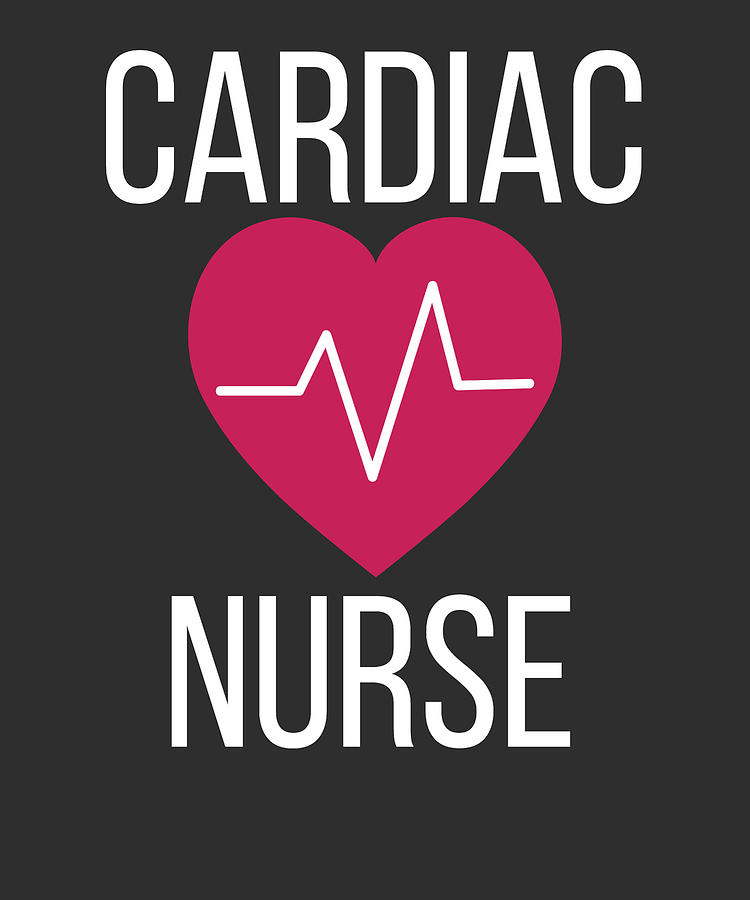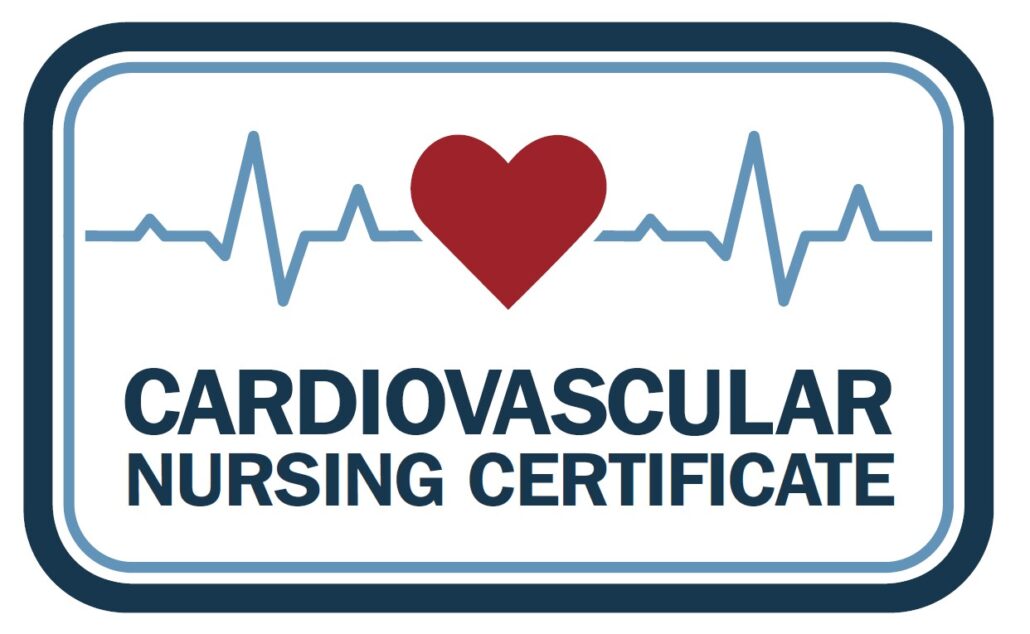Explore the dynamic role of a Cardiovascular Nurse, from educational requirements and certification exams to career outlook and transition opportunities. Discover the advantages and disadvantages of this specialized nursing field and gain insights into the demand for Cardiovascular Nurses in the healthcare industry.
Who is a Cardiovascular Nurse?

A Cardiovascular Nurse is a highly skilled healthcare professional specializing in the care of patients with cardiovascular diseases. These dedicated nurses possess in-depth knowledge of heart conditions, vascular disorders, and related medical interventions. They work closely with cardiologists and other healthcare professionals to provide holistic care, including monitoring vital signs, administering medications, educating patients on heart health, and assisting in various cardiovascular procedures.
How Long Does it Take to Become a Cardiovascular Nurse?
Becoming a CN typically involves completing a Bachelor of Science in Nursing (BSN) or an Associate Degree in Nursing (ADN), which takes approximately 2 to 4 years. After obtaining the initial nursing degree, aspiring Cardiovascular Nurses often gain clinical experience in general nursing before pursuing specialized training in cardiovascular care. The specialization process can take an additional 1 to 2 years through on-the-job training, workshops, or formal education programs, depending on the individual’s career path.
What Does a Cardiovascular Nurse Do?
Cardiovascular Nurses perform a range of duties, including monitoring patients’ cardiovascular health, administering medications, assisting in cardiac procedures, educating patients on heart-healthy lifestyles, and collaborating with other healthcare professionals to develop comprehensive treatment plans. They may work in hospitals, cardiac clinics, or specialized cardiovascular units, providing both acute and long-term care for patients with heart-related conditions.
How to Become a Cardiovascular Nurse?
To become a Cardiovascular Nurse, individuals typically follow a structured path. This includes completing a nursing degree (ADN or BSN), gaining clinical experience, and pursuing specialized training in cardiovascular nursing through on-the-job experience or formal education programs. Additionally, obtaining relevant certifications, such as the Cardiovascular Nursing Certification, can enhance one’s credentials and career prospects in this field.
Educational Requirements for a Cardiovascular Nurse?
Educational requirements for Cardiovascular Nurses usually include a nursing degree (ADN or BSN), followed by specialized training in cardiovascular care. Some healthcare facilities may prefer or require a BSN for cardiovascular nursing roles, as it provides a more comprehensive foundation in nursing practice and theory.
Cardiovascular Nurse Certification and Exam Requirements:

Certification is a significant aspect of a Cardiovascular Nurse’s career. Achieving certifications, such as the Cardiovascular Nursing Certification, demonstrates a nurse’s expertise in the field. The certification process typically involves meeting specific educational and experience criteria and passing a rigorous examination administered by relevant certifying bodies.
Where Does a Cardiovascular Nurse Work?
Cardiovascular Nurses can be found working in various healthcare settings, including hospitals, cardiac care units, clinics, and rehabilitation centers. They collaborate with cardiologists, cardiovascular surgeons, and other healthcare professionals to deliver specialized care to patients with heart and vascular diseases.
What is the Cardiovascular Nurse Career Outlook and Career Growth?
The career outlook for is promising, with an increasing demand for specialized healthcare professionals in cardiovascular care. As the aging population continues to grow, the prevalence of cardiovascular diseases rises, creating more opportunities for Cardiovascular Nurses. Career growth may involve leadership roles, research positions, or advanced practice roles within cardiovascular nursing.
What are the Qualities of a Cardiovascular Nurse?

Effective Cardiovascular Nurses possess qualities such as strong critical thinking skills, compassion, attention to detail, and excellent communication abilities. They must be able to handle stressful situations with grace, work collaboratively with interdisciplinary teams, and stay updated on advancements in cardiovascular medicine.
Are There Any Online Programs to Become a Cardiovascular Nurse?
Yes, there are online programs available for aspiring Cardiovascular Nurses. These programs offer flexibility for individuals who may be working or have other commitments. Online courses can cover both general nursing education and specialized cardiovascular nursing topics, allowing individuals to pursue their career goals while balancing other responsibilities.
What is the Salary of a Cardiovascular Nurse?
The salary can vary based on factors such as education, experience, geographic location, and the employing institution. On average, Cardiovascular Nurses earn competitive salaries, with the potential for increased compensation as they gain experience and pursue advanced certifications or specialized roles within cardiovascular nursing.
How Do CN Transition to Other Nursing Positions?
Cardiovascular Nurses looking to transition to other nursing positions can explore opportunities in areas such as critical care, cardiac surgery, research, or nursing education. Additional education, certifications, and on-the-job experience in the desired specialty are often necessary for a smooth transition to other nursing roles.
5 Advantages to Becoming a Cardiovascular Nurse and 5 Disadvantages:
Advantages:
- Fulfilling Role: They play a vital role in improving the heart health of patients.
- High Demand: There is a growing demand for specialized cardiovascular nursing skills.
- Competitive Compensation: They often receive competitive salaries.
- Diverse Settings: They have the opportunity to work in various healthcare settings.
- Ongoing Learning: Continuous advancements in cardiovascular medicine keep the role intellectually stimulating.
Disadvantages:
- Emotional Strain: Dealing with patients with serious heart conditions can be emotionally challenging.
- Intense Workload: They may face a demanding workload, especially in acute care settings.
- Educational Requirements: Specializing in cardiovascular nursing requires additional education and training.
- Stressful Environments: Working in critical care settings can be stressful and fast-paced.
- Physical Demands: The job may involve long hours and physical demands, especially in busy healthcare facilities.
Cardiovascular Nurse Roles and Responsibilities:

- Monitoring patients’ cardiac health.
- Administering medications and treatments.
- Assisting in cardiovascular procedures.
- Educating patients on heart-healthy lifestyles.
- Collaborating with healthcare teams to develop comprehensive care plans.
What’s the Demand for a CN?
The demand is expected to remain high due to the increasing prevalence of cardiovascular diseases. As the population ages, there is a growing need for skilled professionals who can provide specialized care to individuals with heart and vascular conditions.
How Does a Cardiovascular Nurse Compare to Other Advanced Nursing Roles?
Compared to other advanced nursing roles, Cardiovascular Nurses focus specifically on heart and vascular care. While Nurse Practitioners and Clinical Nurse Specialists may have broader scopes of practice, they bring specialized expertise in managing cardiac conditions, making them integral members of the healthcare team.
What Are the Nursing Specialty Roles of a Cardiovascular Nurse?
- Cardiovascular Intensive Care Nurse
- Cardiac Catheterization Lab Nurse
- Cardiovascular Nurse Educator
- Cardiac Rehabilitation Nurse
- Cardiovascular Clinical Research Nurse
Conclusion:
In conclusion, becoming a Cardiovascular Nurse involves a dedicated educational journey, specialized training, and a commitment to providing quality care to patients with heart and vascular diseases. With a promising career outlook, competitive salaries, and opportunities for continuous learning and advancement, Cardiovascular Nursing remains a rewarding and essential field within the broader spectrum of healthcare. As the demand for cardiovascular healthcare professionals continues to rise, Cardiovascular Nurses play a pivotal role in ensuring the well-being of individuals with cardiovascular conditions.
Frequently Asked Questions
What is a Cardiovascular Nurse? A Cardiovascular Nurse is a specialized healthcare professional with expertise in the care and treatment of patients with cardiovascular conditions. These nurses play a crucial role in monitoring, assessing, and managing individuals with heart and vascular diseases. They work collaboratively with cardiologists and other healthcare professionals to provide comprehensive care, administer medications, educate patients on heart-healthy lifestyles, and assist in various cardiovascular procedures.
What is the Role of a Cardiac Specialist Nurse? A Cardiac Specialist Nurse, also known as a Cardiovascular Nurse Specialist, is an advanced practice nurse who specializes in the field of cardiology. Their role extends beyond general cardiovascular nursing, involving advanced clinical assessments, diagnostic procedures, and the management of complex cardiac conditions. Cardiac Specialist Nurses may work closely with patients managing chronic heart diseases, providing education, coordinating care plans, and contributing to the development of specialized cardiac programs within healthcare institutions.
What is the Role of the Nurse in Cardiovascular Assessment? The role of a nurse in cardiovascular assessment is pivotal in identifying and monitoring patients with heart and vascular conditions. Nurses conduct thorough assessments of patients’ cardiovascular health, including measuring vital signs, assessing cardiac rhythms, and evaluating overall cardiovascular function. They play a key role in early detection of potential issues, contribute to the development of care plans, and collaborate with the healthcare team to implement interventions that promote optimal cardiovascular health.
What Does a Cardiac ICU Nurse Do? A Cardiac Intensive Care Unit (ICU) Nurse, or Cardiac ICU Nurse, is a specialized nurse who works in the intensive care unit dedicated to patients with severe cardiac conditions. Their responsibilities include closely monitoring patients recovering from cardiac surgeries, managing critically ill individuals with acute cardiac events, administering specialized medications, and assisting in complex procedures such as postoperative care for cardiac surgery patients. Cardiac ICU Nurses work in a high-stakes environment, providing meticulous care to patients in critical conditions and collaborating with the healthcare team to ensure the best possible outcomes.
A Page will cost you $12, however, this varies with your deadline.
We have a team of expert nursing writers ready to help with your nursing assignments. They will save you time, and improve your grades.
Whatever your goals are, expect plagiarism-free works, on-time delivery, and 24/7 support from us.
Here is your 15% off to get started.
Simply:
- Place your order (Place Order)
- Click on Enter Promo Code after adding your instructions
- Insert your code – Get20
All the Best,
Cathy, CS


